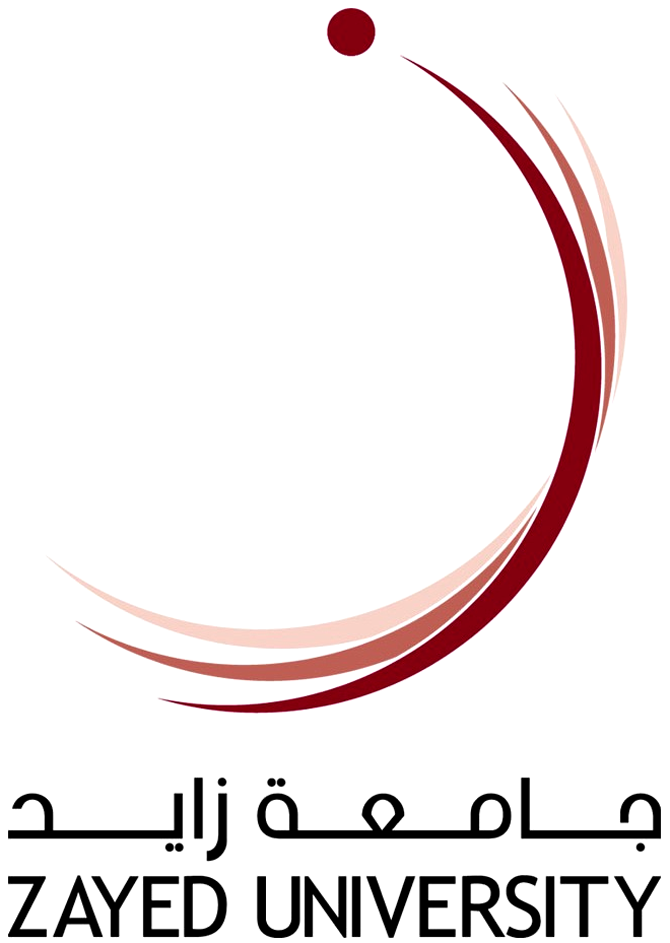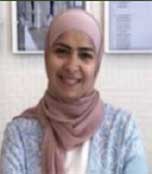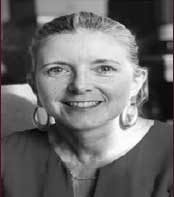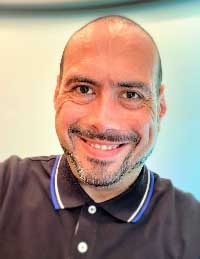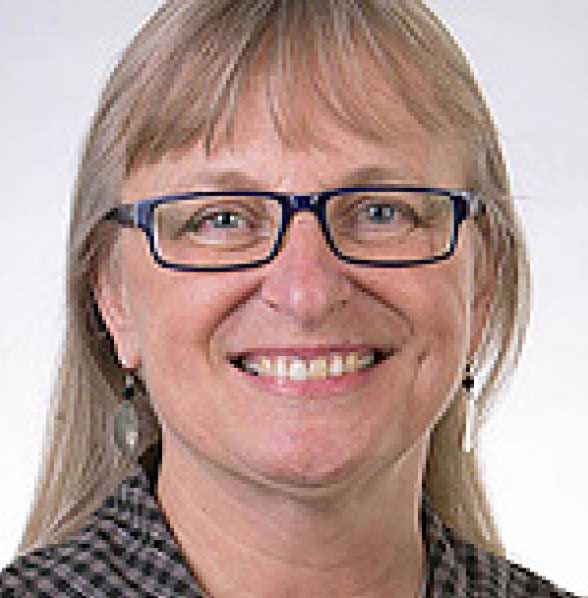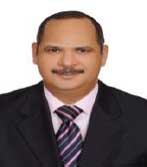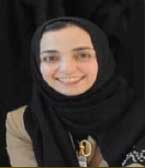ALLT 2020 Professional Development Courses
| Course Description: | The workshop will start by asking the participants to provide a ‘descriptive’ account of a lesson they have taught recently. A definition of ‘reflection’ will be then provided in general and in relation to English Language Teaching (ELT). The types of Reflective Practice (RP) will be then outlined and discussed. This will be followed by outlining and discussing the levels of RP. The participants will be then asked to revisit the ‘descriptive’ account they had produced earlier and transform it into a more ‘analytical’ one. A transition will be then made to the ‘critical’ type of RP in which elaborated and stimulating discussions will be pursued through using a dialogic approach. Next, the participants will be asked to transform their ‘analytical’ account into a ‘critical’ one. The workshop will conclude by establishing a link between ‘critical’ RP and Scholarship of Teaching and Learning (SoTL), where the underlying theory of the latter and its complementary relationship with and reciprocal effect on RP will be discussed. |
| Course Aim: | This workshop has five aims. First, it familiarizes the participants with the ins and outs of Reflective Practice (RP). Second, it helps the participants to see the relationship between RP and the Scholarship of Teaching and Learning (SoTL). Third, it provides a ‘fresh’ perspective on teaching and learning the English language. Fourth, it provides opportunities for the participants to engage in extended and stimulating discussions about teaching and learning English. Last but not least, it gives the participants the opportunity to practice RP. |
| Anticipated Outcomes | By the end of the workshop, it is expected that participants will use the knowledge they will be exposed to in the workshop about Reflective Practice (RP) to critically rethink and improve their ELT status quo. In addition, they will be expected to use the data they gather from their RP endeavors to pursue classroom-based or action research leading to publication. |
| Trainer Bio | Dr. Ali Al-Issa has a Master of Arts in Education (TESOL) from University of London, U.K. and Ph.D. in Education (Applied Linguistics) from University of Queensland, Australia. Dr. Al-Issa is currently an Associate Professor of English Language Education at the Department of Curriculum and Instruction, College of Education, Sultan Qaboos University (SQU), Sultanate of Oman. He teaches at the present time English Language Teaching (ELT) Methods and ELT School Curriculum courses to undergraduate and postgraduate students respectively and supervises ELT student teachers during the practicum. Prior to this, he taught Content and Language Integrated Learning (CLIL) courses at the College of Law, SQU. Dr. Al-Issa has extensive experience in different areas of English Language Education and has been involved in the policy and planning of English Language Education for over 30 years. He has presented and published widely about English Language Education in Oman in local and international venues. He is a recipient of several local and international teaching and research awards and recognitions. Dr. Al-Issa has been the best cited Omani English Language Education scholar since 2005. His research interests include, but not limited to, foreign/second language education policy and planning and teacher training and education. |
| Course Description: | In this course we shall consider principles of a CCG approach to grammar teaching, outlined in my plenary talk, and discuss how these principles will help to guide the design of grammar exercises and activities. This will be a mainly practical, hands-on session: we shall try out and analyses a variety of Communicative grammar activities, mainly in small groups, and consider how these activities might support the learning of grammar in our own classrooms. |
| Course Aim: | The aim of this course is that participants reflect on, and critically discuss, different approaches to grammar teaching. In particular, we shall focus on differences between traditional grammar teaching and methods deriving from a CCG approach. Participants will try out and analyses a variety of Communicative grammar activities to assess their potential for supporting grammar acquisition. |
| Anticipated Outcomes | Participants will understand principles of CCG and will have an increased ability to evaluate the effectiveness of grammar exercises and activities. In addition, they will be provided with a stock of grammar activities which can be used in, or adapted for, their own classrooms. |
| Trainer Bio | David Newby was, until his retirement, Associate Professor of English Language Didactics and Applied Linguistics at the University of Graz, Austria, and subsequently Adjunct Professor of Language Didactics at the University of Bergen, Norway. He began his teacher career as an eighteen-year-old at a secondary school in Thailand; for three years he taught in the Language Centre of Kuwait University. He has held lectures at conferences and universities as well as workshops for language teachers and students in forty different countries. His main areas of interest are pedagogical grammar, cognitive approaches to second language acquisition, communicative language teaching, and learner and teacher competences. He has written grammar books, school textbooks, dramas and short stories, as well as a large number of academic articles. He has worked extensively for the Council of Europe and is the co-author and coordinator of the European Portfolio for Student Teachers of Languages. He is currently consultant to the European Centre for Modern Languages of the Council of Europe. |
| Course Description: | Since its inception in 2010, the iPad has evolved through many phases to become a versatile and flexible pedagogical tool in the classroom. Numerous studies have demonstrated a spectrum of results that focus on the device as the sole determinant of success. This workshop allows participants to understand the complexities of establishing a context-based approach to the iPad’s implementation in the language classroom while considering the fact that it has notable differences from earlier models. |
| Course Aim: |
The aim of this course is to establish the following:
|
| Anticipated Outcomes |
|
| Trainer Bio | Michael is a specialist in pedagogical Innovation and effectiveness at the Centre for Educational Innovation (CEI), Zayed University. He is the lead Apple Professional Learning Specialist in the Middle East and has conducted numerous workshops with Apple technology in active learning contexts. He is graphic designer and also an educator with over 20-year experience with interests in Mobile Assisted Language Learning (MALL), interactive materials development and design thinking for curriculum development. Michael has created enhanced electronic content for the British Council and several educational institutions in the Middle East and the UK and has authored teaching content for Cambridge University Press. |
| توصيف الكورس التدريبي | ما زال ضمان حصول جميع الطلبة على فرص متكافئة لتلقي تعليمهم في بيئة تعليمية دامجة عالية الجودة مع بقية أقرانهم ومراعاة احتياجاتهم والفروق الفردية تحديا لدى معظم الدول. ستوفر ورشة العمل هذه معلومات حول أنواع الإعاقة المختلفة وكيف يمكننا توفير التعليم الشامل والدامج لجميع الطلبة دون استثناء، بالإضافة الى فهم التحديات والعقبات التي تواجه الطلبة الذين يعانون من إعاقة و معلميهم أثناء التعليم. في الجزء الأول من التدريب، سوف يتم مناقشة مفهوم و أنواع الإعاقة والتحديات التي تواجه الطلبة من الذين يعانون سواء من إعاقة واضحة )الإعاقة البصرية، الإعاقة الحركية، الإعاقة السمعية( او إعاقة غير مرئية )صعوبات التعلم( من خلال أنشطة المحاكاة لأنواع الإعاقة والتحديات المرتبطة بظروف التعليم. ومن ثمة سوف يتم عرض المبادئ الرئيسة للتصميم الشامل للتعليم وكيف يمكن للمعلم استخدامها لتوفير بيئة دامجه للجميع. اما في الجزء الثاني سوف يتم تدريب الحضور على كيفية تجهيز الوسائل التعليمية منذ البداية ضمن مبدأ التصميم الشامل واستخدام :خصائص التسهيلات المتوفرة في مستندات Microsoft Office ، أجهزة Apple ، PDF ، بالإضافة الى تهيئة الملفات المرئية وإتاحة الوصول إلى الصور المستخدمة داخل البيئة الصفية. بنهاية ورشة العمل، سيتمكن المشاركون من تحديد طرق عملية لخلق بيئة تعليمية أكثر شمولية يمكنهم تطبيقها من تلقاء أنفسهم. |
| أهداف الكورس التدريبي | تهدف ورشة العمل هذه إلى زيادة الوعي بين المعلمين بشأن أفضل الممارسات العالمية لتوفير بيئة تعليمية شاملة للجميع والتأكيد على أن التصميم الشامل في البيئة التعليمية مفيد لجميع الطلبة وليس فقط للطلاب الذي يعانون من إعاقات. |
| المخرجات المتوقعة |
بنهاية ورشة العمل ، سيتمكن المشاركون من:
|
| نبذة مختصرة عن المدربتين | ميساء سامي عبيد، أخصائي إدارة تسهيلات - إدارة التسهيلات الطلابية، جامعة زايد - دبي. أخصائي تسهيلات دولي معتمد وحاصله على جائزه أبل للتعليم Apple Distinguished Educator . ميساء حاصلة على درجة الماجستير في تأهيل البصري من الجامعة الألمانية الأردنية وحاليا تكمل دراسة الدكتورة بجامعة لانكستر بتخصص التعليم الإلكتروني والبحث المعزز للتكنولوجيا )عن طريق العمل والأطروحة( ولديها خبره أكثر من 14 سنة بمجال توفير الخدمات والتسهيلات لأصحاب الهمم. مريم جمعه، مسؤول تهيئة المناهج التعليمية للطلاب من أصحاب الهمم - جامعة زايد . خريجة كلية التربية في جامعة زايد وتكمل ماجستير التعليم الدامج في الجامعة البريطانية بدبي حاليا. تعمل على تهيئة المناهج في قسم التسهيلات الطلابية بدبي والذي يتضمن تحويل المواد الدراسية والامتحانات إلى طريقة برايل أو أي طريقة توائم الطالبات من أصحاب الهمم. بالإضافة إلى أنها دربت على استعمال أحدث الأجهزة التي تساعد في تقديم أجود الخدمات الطلبة. مريم تساعد أيضا في جعل البيئة الصفية مناسبة للجميع من حيث إمكانية الوصول وتوفير كافة المواد اللازمة لإدماج الطلبة من أصحاب الهمم. تساعد مريم في بعض التدريبات حول كيفية التعامل مع أصحاب الهمم والطريقة المناسبة لتصميم المنهج الدراسي وغيرها لمعلمي طلبة جامعة زايد. |
| Course Description: | One of the most effective models of professional development is teachers conducting research into their own classroom practice. Research has shown that teacher-initiated inquiries are more likely to bring about long-term transformation of teaching practice. This course introduces the key aspects that a teacher needs to consider in order to design, conduct and disseminate a classroom-based research project. The sessions will cover a hands-on workshop on what classroom-based research project looks like and engage participants in a series of short activities to help them design a project. Following that, sessions will concentrate on disseminating results through conference presentations and publications. |
| Course Aim: |
The session aims to:
|
| Anticipated Outcomes |
At the end of the course, participants will:
|
| Trainer Bio | Prof. Dr. Christina Gitsaki is the Research Coordinator at the Center for Educational Innovation, Zayed University, UAE. During her 22-year career in higher education she has contributed to the field in a number of different capacities such as English language teacher, applied linguistics lecturer, pre-service teacher educator, in-service teacher trainer, textbook author, project manager, curriculum leader, editor, and researcher. In the past, she served as the UNESCO Chair in Applied Research in Education in Sharjah and later as the Associate Dean of the Foundations program at the Higher Colleges of Technology, UAE. Before coming to the UAE, she worked at The University of Queensland (UQ) in Australia, where she educated pre-service ESL teachers and supervised Masters and Ph.D. students in language education research. Dr. Gitsaki has presented her research at over 140 International Conferences, has been an invited speaker at over 60 professional events and she has published 75 papers in refereed journals and book chapters on language acquisition and pedagogy. She is the author, editor and co-editor of 12 books on language education research. At the CEI she provides advice and mentorship to faculty who are interested in engaging in research on teaching and learning. |
| Course Description: | Investigations of the role of explicit and implicit learning in acquiring a second/foreign language suggests that while classrooms are typically good at providing opportunities for explicit learning, this will insufficient to address the large amounts of language data needed (Ellis, N. 2008; Seidenberg, 2017). Implicit learning occurs when the processing of meaningful language remains below the threshold of conscious attention to how the language works. The conditions for implicit learning can be created by attending to the development of fluency, which is the component of proficiency that reflects the learners’ ability to use the language with a “sense of comfort, confidence and control” (Mayher, Lester, and Pradl, 1983), which results from learners having opportunities to express their ideas quickly and continuously without fear of having their incomplete language systems critiqued for inaccuracies Nation (2000) claims that fluency building activity should make up 25% of any language curriculum, and yet methodologies for fluency-building are not systematically evident in ESL/EFL textbooks nor considered in many methodology courses for language teachers. Research on the teaching and learning of reading, writing, listening, and speaking supports attention to fluency development apart from accuracy-focused activity (Dapke, 2013; Ewert, 2011; Nation, 2000; Robb and Kano, 2014; Waring, 2009; Wood, 2001, 2006). |
| Course Aim: | In this workshop, participants will engage in, create, and evaluate fluency-building activities for each skill, and leave with a packet of materials and procedures for promoting implicit learning opportunities. Together participants will discuss principles of implicit and explicit learning instruction; practice fluency promoting techniques in each of the four skills; evaluate classroom practices for fluency-building components, and finally, develop fluency-promoting curricular components for their respective teaching context. |
| Anticipated Outcomes |
By the end of this workshop, you will be able to:
|
| Trainer Bio | Doreen Ewert is Professor in the Department of Rhetoric and Language and Director of the Academic English for Multilingual Students Program at the University of San Francisco. Her areas of research include second language reading and writing, vocabulary and fluency development, language assessment, and curriculum design and implementation. She presents regularly at regional, national, and international conferences, as well as providing workshops for pre-service and in-service teachers. Her most recent publications are (2018) Teacher and Tutor Conferencing in The TESOL Encyclopedia of English Language Teaching, (2017) Getting ER into the curriculum: No excuses! CATESOL Journal, and with Sunyoung Shin, (2015) Teachers’ conceptualizations of a reading-to-write task in designing a data-driven rating scale, in Assessing Writing, and (2015) What accounts for integrated reading-to-write task scores? in Language Testing. |
| Course Description: | This workshop is aimed at practising teachers, Master level students or PhD candidates who are considering having their research published. A practical and interactive approach will take participants to aspects involved in the process of publication such as, the first draft, peer-reviewing, editorial feedback and the acceptance of the final draft. Each one of these processes will be discussed and illustrated with real examples so that participants become familiar with the guidelines for authors produced by some major journals in the field of Applied Linguistics and Language Teaching whilst providing some useful tips and suggestions to encourage participants to disseminate their intellectual work to wide audiences. Additionally, there will be an emphasis on the value of collaborative research and on the power of social media to gauge the potential of scholarly work for publication. |
| Course Aim: |
The workshop aims to:
|
| Anticipated Outcomes |
The workshop will:
|
| Trainer Bio | Mario is a Senior Fellow of the Higher Education Academy (SFHEA) in the UK and is currently the Programme Leader of the Master in English Language Teaching at the University of East London (UEL), where he teaches undergraduate and postgraduate courses in the areas of language education, teacher training and psychology of language learning. He also examines and supervises PhD and EdD theses within the UK and internationally, and is a Visiting Scholar in Universities in Europe, USA and Asia. Mario is a consultant for the British Council on English as a medium of instruction (EMI) and advises Higher Education institutions in non-English speaking countries on the implementation of content-based language methodologies for the teaching of degrees through the medium of English. He is an active researcher in the field of academic literacies, multilingualism and literacy practices, and the psychology of language learning with a focus on the role of interpersonal relationships in the classroom. He publishes widely and conducts continuing professional development courses on these subjects. Mario is a keynote speaker in several international conferences and is a member of the British Association of Applied Linguistics (BAAL) and of the British Educational Research Association (BERA). |
| توصيف الكورس التدريبي | تركز ورشة البحوث الصفية على تطوير مهارات التربويين في الميدان لمواجهة بعض التحديات التي تواجههم من خلال البحث والتدقيق وذلك للتوصل للحلول بأسلوب علمي ، وتطوير مهارات المدرسين والتربويين في الممارسات التربوية بغرض تحسينها وزيادة فاعليتها. الورشة تفيد المعلمين الذين يحاولون تطوير مهارات التدريس لديهم أو زيادة مستوى أداء الطلبة أو اختبار فاعلية المنهاج أو الكتاب الدراسي وذلك من خلال إجراء بحث تجريبي أو بحث إجرائي داخل البيئة الصفية. الفئة المستهدفة هي مدرسو اللغات من مختلف المراحل التعليمية، يفضل تكون للمشارك خبرة في المجال التربوي؛ والهدف من ضرورة وجود خبرة سابقة في الميدان يكمن في أهمية إلمام المُشارك في البرنامج بالتحديات والقضايا التي يرغب بإخضاعها للبحث ووضعها حيز التركيز للتوصل إلى حلول وتنمية المهارات المطلوبة. |
| أهداف الكورس التدريبي | تستهدف الورشة التدريبية تطوير مهارات الاستقصاء والتفكير الناقد للمعلم في تقييم القضايا التربوية، ووضعها حيز البحث بحيث يتم النظر إلى الحلول الممكنة بمنهجية علمية من خلال تجميع البيانات وتقييمها و تحليلها وتفسيرها والتوصل إلى الحلول المطلوبة لمعالجة القضايا المستهدفة مما يؤدي بدوره إلى وضع الحلول والمقترحات حيز التطبيق لمعرفة تأثيرها ومدى فاعليتها وملاءمتها للميدان. تهدف ورشة العمل هذه إلى زيادة الوعي بين المعلمين بشأن أفضل الممارسات العالمية لتوفير بيئة تعليمية شاملة للجميع |
| المخرجات المتوقعة |
مع نهاية البرنامج التدريبي، يطوّر المُشارك المهارات الآتية:
|
| نبذة مختصرة عن المدربين | الدكتور محمد جابر أستاذ مناهج اللغة العربية والتربية الإسلامية وطرق تدريسهما . يعمل بكلية التربية - جامعة الإمارات
( ١٩٩٩ - إلى الآن(. حصل على الدكتوراه من جامعة أسيوط عام ١٩٩٧ ، ورقي إلى درجة أستاذ مشارك عام ٢٠٠٤ ،
ورقي إلى نفس الدرجة بجامعة الإمارات عام ٢٠٠٦ . حصل على الأستاذية من جامعة أسيوط عام ٢٠١٠ ، كما حصل
على الأستاذية من جامعة الإمارات عام ٢٠١٥ ، لديه أكثر من خمسة عشر كتابًا في مجال التخصص ، منها خمسة كتب
مقررة على طلاب الجامعة. من مؤلفاته المنشورة: البيئة الصفية في التعليم الابتدائي ، ومعايير التفوق اللغوي للمعلم والمتعلم
، وعلاج المشكلات البيئية في منهج الإسلام ، وتنمية الوعي البيئي لدى طلاب التعليم العام، والمفاهيم الدينية الإسلامية )
تحديدها وتشخيصها، وتنميتها( ، وطرق تدريس التربية الإسلامية في التعليم الابتدائي، وطرق تدريس اللغة العربية
للمرحلتين الإعدادية والثانوية، وتنمية قواعد اللغة العربية ومفاهيمها. حاصل على جائزة خليفة التربوية فئة البحث الإجرائي
المتميز في الدورة الخامسة عام ٢٠١١ - ٢٠١٢ ، وجائزة الشارقة للبحث التربوي التطبيقي المتميز ٢٠١٦ ، ولديه أكثر من
عشرين بحثًا ومقالة منشورة، شارك في العديد من المؤتمرات المحلية العالمية . حكَّم عدداً كبيرًا من البحوث العلمية. فحص
النتاج العلمي لباحثين كثيرين متقدمين للترقية في الجامعات العربية. درَّس كثيرًا من المساقات في مجال التخصص في عدة
جامعات ، عضو هيئة تحرير المجلة الدولية للبحوث التربوية. الدكتورة وفاء زغبر أستاذ مشارك في تخصص اللغويات التطبيقية وتعمل في جامعة زايد قسم الكتابة الأكاديمية وهي مساعد العميد للبحوث وخدمة المجتمع في الكلية الجامعية في مقريها بأبوظبي ودبي. حصلت على الماجستير ( ٢٠٠٧ ) والدكتوراه ) ٢٠١١ ( من جامعة ليستر في المملكة المتحدة ، لديها العديد من البحوث المنشورة في مجال النطق والصوتيات، اللغة والتنوع الثقافي في دولة الإمارات، واستخدام اللغة الإنجليزية كلغة تواصل دولية. تشرف حاليا على عدد من بحوث طلبة الماجستير في مجال تدريس اللغات وتقوم بعدد من المشروعات البحثية الممولة من قبل جامعة زايد ووزارة الثقافة وتنمية المعرفة. تقوم بدور المحرر والقييم لعدد من المجلات العلمية مثل: Sage Open, system and Journal of Second Language Pronunciation, نشرت آخر مؤلفاتها خلال عامي ٢٠١٨ و ٢٠١٩ في: System, Intellectual Discourse, Asian Englishes and World Englishes |
| Course Description: | Including all learners and ensuring that each individual has an equal and personalized opportunity for educational progress is still a challenge in almost every country. This workshop will provide information on different disability types and how we can provide inclusive education, understanding what barriers there are to learning and how to challenge them. In the first part of the training, the participants will have the opportunities to experience different types of disability through the simulation activities connected to education settings and how to identify and support learners who may have “invisible” disabilities since these learners experience a greater risk of dropping out when their conditions go unnoticed in educational settings. The second part will be the layer of the accessibility of Microsoft Office, Apple technology and PDF documents, making course instruction pages accessible, captioning of videos, making images accessible, and designing for learning differences. By the end of the workshop, the participants will be able to identify practical ways to create a more inclusive learning environment that you can apply in their own. |
| Course Aim: | The purpose of this workshop is to increase awareness among educators about the best practices to provide an inclusive learning environment area. |
| Anticipated Outcomes | Participants will learn and understand the different disability types, disability etiquette, and the pathways to participation for students with disabilities in the education: Develop confidence and competence to adapt skills, activities and games to make them more accessible and inclusive for students with disabilities. |
| Trainer Bio | Maisa Obid is a Ph.D. candidate (in Enhanced Learning Technology) from Lancaster University UK and MSc Graduate in Vision Rehabilitation from the German Jordanian University. Maisa is a certified International accessibility specialist and a certified Assistive Technology Professional with nearly eight years’ experience in Assistive Technology domain with more than six years extensive experience in rehabilitation and visual impaired assessment for students with special needs. At present, Maisa works as an Accessibility Specialist for Zayed University - Dubai Campus. Maisa’s core responsibility is to ensure inclusive education for Zayed University students and also to support Academics creating their own curriculum materials based on a Universal Design Standards. Mariyam Juma is the accommodation officer for people of determination in Zayed University. Mariyam is a graduate from Education college and doing her Masters in inclusion education in the British university of Dubai. She has been working in students Accessibility services department for three years where she transfers course materials and exams to Braille or other types deepening on students of determination needs. She has been trained on using the newest devices and software to serve students of determination effectively. Mariyam accommodates classroom environment to make it more accessible for all students. She also provides trainings for teachers and students in Zayed University such as etiquette on dealing with special needs and making university and courses more accessible. |




